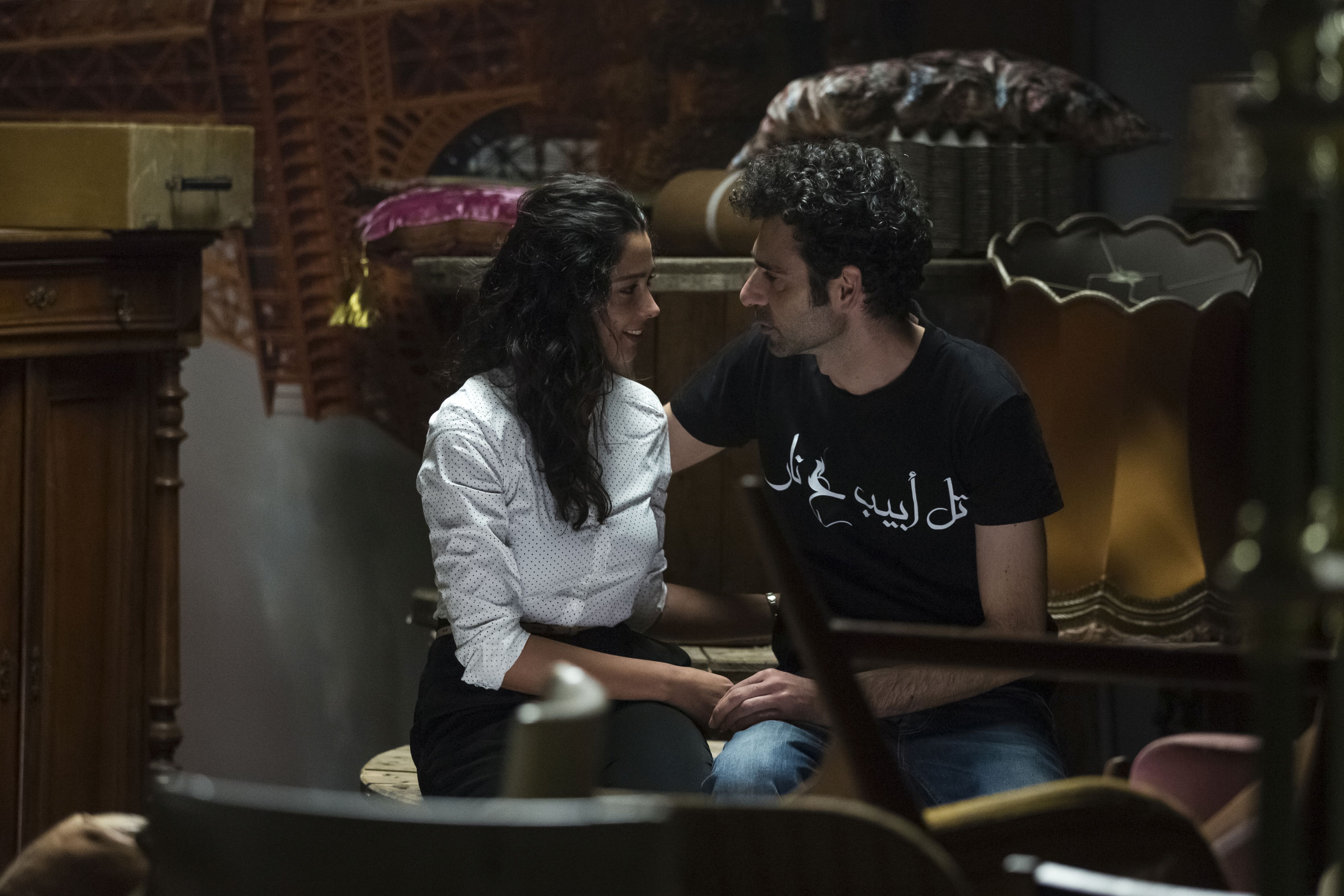Venice Film Review: ‘Tel Aviv on Fire’
By Jay Weissberg
LOS ANGELES (Variety.com) – Given how illuminating comedies about impossible situations can be, it’s a great pity so few deal with the Palestinian-Israeli conflict. When they do crop up, like “Tel Aviv on Fire,” reactions tend to be relief – “Finally we can laugh about this!” – or uncritical support coming from a well-meaning yet ultimately condescending place – “Isn’t it great these people can make a comedy!” Both responses will attach themselves to Sameh Zoabi’s genial satire about a Palestinian soap opera writer and the Israeli security officer who tries to influence the direction of a TV show’s plot. Fitfully amusing yet unable to withstand close inspection, the movie will be a popular item in festivals and showcases, though Israeli money means Arab play is impossible.
Zoabi’s imagining of the soap, itself called “Tel Aviv on Fire,” is the film’s masterstroke, reproducing all the outrageous plot twists and visual excesses of the genre. The setting is a nostalgic spy story in the lead-up to the Six-Day War, with Manal going undercover as “Rachel” and seducing Israeli general Yehuda in order to infiltrate the enemy and report their plans back to her lover, Palestinian resistance fighter Marwan. The show is a huge success on both sides of the dividing wall, and producer Bassam (Nadim Sawalha) aims to keep it that way. He’s hired his unassertive nephew Salam (Kais Nashef) to help the actors with their Hebrew pronunciation so as not to lose the show’s significant Israeli audience, notwithstanding the plot’s clear anti-Zionist agenda.
Salam gains the favor of the soap’s star, Tala (Lubna Azabal), when he points out a linguistic error in one of her lines; puffed up by the feeling that he’s made a contribution to the show, he claims to be a writer for the series when stopped by border control on his way back home to Jerusalem from the studio in Ramallah. Security officer Assi (Yaniv Biton) is interested because his wife and her family are annoyingly addicted to what he considers anti-Israeli schlock, and he figures he can impress his spouse if he tells her what’s going to happen next. The following day Assi again stops Salam but this time he’s got an idea: make Manal/Rachel really fall in love with Yehuda and throw over Marwan. It’s not a request but an order, given that Assi can make Salam’s life hell by refusing to let him across the checkpoint.
Anyone who’s encountered the Israeli-Palestinian border crossings knows they’re subject to the whims of the guards, so Salam’s dilemma isn’t all that impossible to imagine. With Tala’s support, he’s able to get a promotion to writer for real, which he hopes will impress his ex-g.f. Mariam (Maïsa Abd Elhadi, always a welcome presence). But how will he manage to appease an increasingly interfering Assi without promoting a storyline that makes the Israelis into romantic heroes?
As with Zoabi’s debut. “Man Without a Cell Phone,” the humor is broadly situational, taking a likable if unremarkable Everyman and thrusting him into scenarios that highlight the inequality and absurdity of Palestinians’ status within Israel. As satire, “Tel Aviv on Fire” plays on two levels: One is a loving send-up of soap operas; the other aims at a more knowing commentary on the pressures of daily life, yet while pleasing, the humor has little bite. A scene of Salam driving alongside the separation wall as if he’s searching for an opening seems designed strictly for non-locals who might imagine there exists an easier way to cross (that’s a joke in itself), and the side plot involving his wooing of Mariam needs developing or at least more background. Strongly to be commended is Zoabi’s depiction of a vibrant Palestinian middle class, a sector too often forgotten in films from the region.
Venice’s Horizons jury awarded Nashif its best actor prize, and his hangdog persona awakening to ambition and the impossibility of his situation is well-played, contrasted with the deliberately more exaggerated performances of the soap stars. Zoabi’s shifts between the two worlds, real and imagined, give him the greatest scope for amusement, and he clearly has a ball with the garish lighting and showy camerawork of the TV series.

